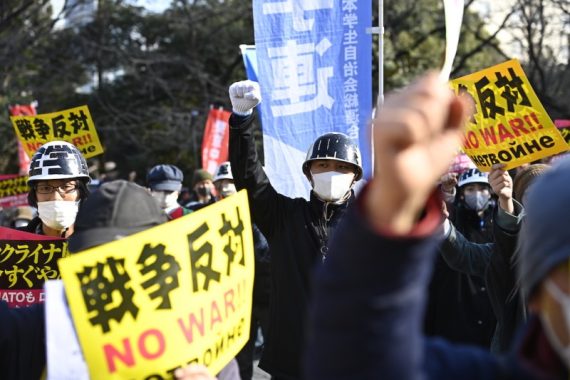R
ussia has issued a stern warning to Japan, expressing concerns over its decision to export Patriot PAC-3 anti-aircraft missiles to the United States. Moscow argues that this move has negative implications for global security and could strain relations between Russia and Japan, especially if the munitions find their way to Ukraine.
During a regular press briefing in Moscow, Russian Foreign Ministry spokeswoman Maria Zakharova criticized Japan’s decision, stating that it signifies a departure from the pacifist principles embedded in the country’s post-war constitution. Zakharova emphasized that Japan’s accelerated remilitarization and the transfer of weapons to the US could have tangible and adverse consequences for both global and regional security.
Zakharova highlighted the potential risk of the Japanese-made Patriot missiles being redirected to Ukraine, characterizing such actions as unequivocally hostile toward Russia. She expressed concern that Japan is losing control over its weapons, now subject to U.S. decisions on their deployment.
The first time since World War II
Japan’s recent approval to export PAC-3 missiles follows the country’s significant shift in military export policy, marking the first time since World War II that Japan has exported weapons. The decision came after Japan ended a ban on military exports imposed in 1947, allowing Tokyo to export weapons produced in Japan under foreign licenses.
While Japan maintains that the Patriot missiles are not expected to be directly sent to Ukraine, there are concerns that the move may indirectly facilitate the delivery of U.S.-made Patriots to Kiev, with the Japanese missiles replacing them in the U.S. stocks.
In response to Russia’s warning, Japanese Prime Minister Fumio Kishida asserted that there is no change to Japan’s principle as a pacifist nation. However, the move is seen as part of Japan’s broader military buildup initiated by Kishida last year, aiming to make Japan the world’s third-largest defense spender, after the U.S. and China. The Japanese government also recently approved a record 16% hike in military spending.
Kuril Islands
The deteriorating relations between Russia and Japan have been exacerbated by Russia’s military actions in Ukraine, with Japan joining Western allies in imposing economic sanctions on Russia. The two nations have yet to formally conclude a treaty ending World War II hostilities due to a longstanding territorial dispute over the Kuril Islands.
In a significant geopolitical move, the Ukrainian Parliament has formally recognized two disputed islands in the Kuril Islands chain, Habomai and Shikotan, as Japanese territory. The decision, made on Friday, came after a heated debate in the Ukrainian parliament, which is currently grappling with Russia’s aggressive attempts to annex Ukrainian territories.
The international community is closely watching the developments, recognizing the potential geopolitical ramifications of Japan’s strategic shift and its impact on the delicate balance in the region.
Sources: Anadolu Agency, Russia Today and Reuters.
Recommended





